Whenever I think of writing about the future, I always remember those early writers of science fiction beginning in the forties and extending into the seventies, Heinlein and Asimov among them, who thought we’d be smoking in spacesuits, and that women in an technologically advanced society would be making meals in the galley while the men fought wars inspired by the American navy. The future has turned out to be much more difficult to predict, and oddly it is more E. M. Forster’s 1909 “Machine Stops” and Olaf Stapledon’s very modern Last and First Men from 1930 that seem to have come closer to reality.
One of the central problems is trying to define that changes that happen to society by the adoption of a new technology is one that Marshall McLuhan expressed in the fifties about the printing press. At the beginning of the age of printing, what in the western tradition we think of as the invention of the  Gutenberg press, no one could have predicted, McLuhan argues, what changes to society such a seemingly insignificant invention would have. Typically when people remember the Gutenberg press they remember the first printed bible, although the press was busy printing the much more lucrative indulgences for the church.
Gutenberg press, no one could have predicted, McLuhan argues, what changes to society such a seemingly insignificant invention would have. Typically when people remember the Gutenberg press they remember the first printed bible, although the press was busy printing the much more lucrative indulgences for the church.
No one could have predicted the reformation, although that proved to be one of the most minor effects of the press. The growth of literacy, democracy with an educated public, scientific communication, and the mass of literature that allowed the growth of thousands of artistic communities, all came about as a direct result of the press. As well, we have changed our idea about truth. The medieval peasant who sat at the priest’s knee and listened raptly to words he could not decipher let alone question is no more. Now people demand proof and point to their own research, which granted for most means spending hours online at night trying to explain one phenomena or another.
If the lowly printing press, which only delivered and packaged the written word, could have such far ranging effects it is no wonder that writers have struggled to write about what might concern their fellows in the near or even far future. The writers who do it best are those that have made an assessment of universal human verities. That Asimov and Heinlein thought women would be content in roles from the fifties, or that men would be content with women at the sidelines as cheerleaders to male accomplishment, shows that those two men put little thought into the trends of their societies, at least in terms of gender. H. G. Wells, with only the suffragette movement to work from, knew that emancipation of all people was an idealized and possible future. Father Amerton, from Wells’ Men Like Gods, who tries to force clothes on the women he thinks of being too scantily clothed in order to hide his own prurient desires, provides evidence of Wells’ rejection of those archaic values. The utopian society of that book is horrified by what the reverend thinks of as cherished ideals, and it becomes obvious the worlds are in collision.
To come back to the example of smoking in a space ship, or even a spacesuit, it seems that some writers of the fifties and sixties had difficulty imagining a society that had gotten past even the most mundane of ridiculous cultural norms. Their cultural future was similar to the wasteland of their social background, in which men had bigger guns, and fought the same wars in the same way. Even if they had traveled and experienced different cultures, you would think that writers with such a limited perspective might have modified their idea of the future.
Of course there are many science fiction writers now, with the perspective offered by Wells as well as the mistakes by others who were equally famous, who can imagine a future which is qualitatively different. William Gibson, Cory Doctorow, and Charles Stross’ cyberpunk novels stand as a testament to that.
This brings us back to E. M. Forster’s “Machine Stops” and Olaf Stapledon’s Last and First Men. In both of these texts, the authors imagine a society which tinkers with the DNA of humans, even before we knew such a thing was possible. They both also realize the necessity for instantaneous communication. Like Wells’ telephone pole devices in Men Like Gods, Forster gives us facetime and skype with his flat disks which show an approximation of the person you are talking to. The Machine itself sees to the breeding of the populace, and weeds out traits it finds undesirable by a combination of selective breeding and social pressure. In Stapledon’s wide-ranging epic, humanity falls and rises a dozen times, only to come back to the same universal problems. Humanity modifies itself a dozen times in order to improve ourselves, and makes colossal mistakes only to recover.
We may contrast this with Poul Anderson’s “Flight to Forever,” in which men and women play out the same tired stories of battle and conquest, trapped forever in roles that are as repugnant as they are unrealistic. If ever there was a text which would make time travel seem horrifyingly pointless, it is Anderson’s endless repetition. The same guttural concerns are experienced by the first people as the last, and the only way off the wheel is to let it complete its turn.
There is no easy answer to writing about the future. Current trends are as difficult to predict as the internet would have been impossible to foresee in the early 1900s. As writers it behooves us to think beyond what humanity is concerned with now, to look beyond the motes in our eyes, and try to see our way clear of the cultural blinkers we’ve been saddled with. We may take our cues from other cultures, who think of gender and reasoning differently, and always think what around us could disappear at a moment’s notice, such as smoking. I’ve been on airplanes left from the seventies that had ashtrays in the armrests, but even then it was obvious the society was shifting around us. Science fiction writers, above all, should be cognizant of societal and cultural change.
If, Philip K. Dick is right, and like his Electric Ant we are programmed to ignore the fixedness of our perceptions and ideology, then we can always paint over the holes of our ideas, poke new holes in the ticker tape of our reality, and finally step outside that reality altogether, as the ticker tape is cut and we venture onto entirely new ground of a truly unrecognizable future.


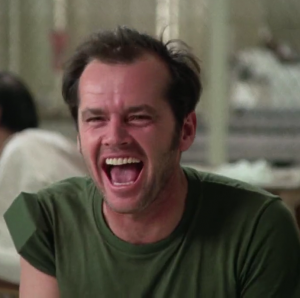


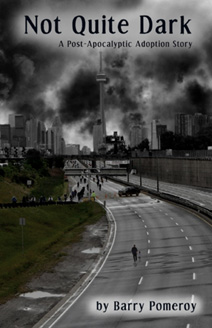 other night. I dreamed that Obama had unwittingly endorsed my book because he’d recommended it to a friend. The resulting media firestorm soon had my book flying off the virtual shelves. Soon that was followed by the sales of my other books, and suddenly I was hugely popular and had to worry about keeping my fans happy, deflecting the haters, and dealing with media reactions and demands as well as keeping the writing machine going.
other night. I dreamed that Obama had unwittingly endorsed my book because he’d recommended it to a friend. The resulting media firestorm soon had my book flying off the virtual shelves. Soon that was followed by the sales of my other books, and suddenly I was hugely popular and had to worry about keeping my fans happy, deflecting the haters, and dealing with media reactions and demands as well as keeping the writing machine going.


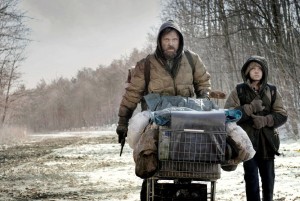
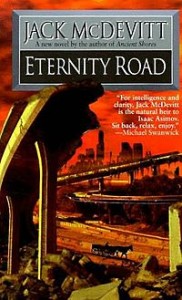
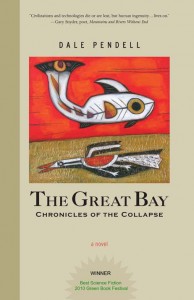

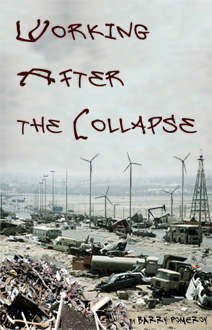

 by building either a
by building either a  to collect business cards and numbers and make them easy to access. In my case, that’s my memory. When anyone tells me something, quite involuntarily, my minds sifts through the thousand other similar statements they’ve made looking for consistency. I don’t do this to be a jerk. It happens on an instinctual level. Obviously, this would have been a useful survival skill to an insecure child, but for some reason—and perhaps that requires another essay—it still persists. I can hear the fluttering of the cards as the memory is sought after and then the halt of the wheel when it is found. I don’t search for accuracy, or similarity of statement, I search, rather involuntarily, for contradiction.
to collect business cards and numbers and make them easy to access. In my case, that’s my memory. When anyone tells me something, quite involuntarily, my minds sifts through the thousand other similar statements they’ve made looking for consistency. I don’t do this to be a jerk. It happens on an instinctual level. Obviously, this would have been a useful survival skill to an insecure child, but for some reason—and perhaps that requires another essay—it still persists. I can hear the fluttering of the cards as the memory is sought after and then the halt of the wheel when it is found. I don’t search for accuracy, or similarity of statement, I search, rather involuntarily, for contradiction.